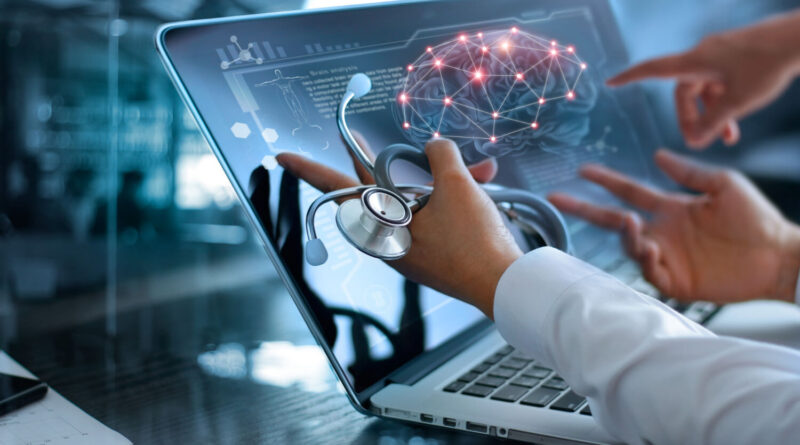How Technology Would Change Healthcare In 2022
The growth and evolution of the healthcare industry are unimaginable without the help of technology. Likewise, technology has shaped diverse aspects of modern life, from transportation to communication and many others.
But with medical science or healthcare, technology has wrapped us with a shield of protection. The system of hospitals, drugs, and patient care all rely on technology in one form or another.
Modern technological inventions are going to give more to the healthcare ecosystem. With advanced drugs, data analytics, artificial intelligence, cloud computing, and many other new innovations in its arsenal, technology will improve and change the healthcare industry in 2022.
Impact Of Technology On the Healthcare Industry
Here are some examples of how technology has influenced the healthcare industry so far and continues to do so in the future.
Digitized Health Records
Technology has replaced the chunk of papers that previously recorded the health information of the patients. Instead of documents, health records have found shelter in cloud storage and are accessible to both the patient and the healthcare providers.
This shift has made storage, management, and transmission of healthcare data very easy. As a result, the healthcare industry is thriving faster.
Artificial Intelligence
Artificial intelligence is already changing the world from behind the scenes. For example, AI has the potential to diagnose patients accurately. They can compare thousands of medical records and analyze the reasons behind the disease. Healthcare management is also another side where AI can help us.
Mobile App In Healthcare
Mobile apps are another blessing of technology that has changed the healthcare industry in the coming year. It is getting easier to take doctor’s appointments, order medicines, and get reminders for medicine intake with mobile apps.
There are fitness apps that are already helping people with regular fitness routines and diets. Mobile apps are helpful for doctors as well. It helps them save lots of work by keeping patient records and other practices.
Cloud Computing
Cloud computing merged with the healthcare system may bring about conspicuous changes. For example, cloud computing will improve healthcare functions such as telemedicine, post-hospitalization care of patients, and virtual medication adherence.
Through telehealth, cloud computing can improve access to healthcare services.
Information & Communication Technology
Information & telecommunication technology has opened a new world for the healthcare industry. Patients can now communicate with doctors from home using their mobile devices.
Most importantly, the fast and easy accessibility of information is an advantage to medical experts. In addition, diverse tribes and groups provide new information about genetics, disease, and cure.
Telehealth & Telemedicine
Telehealth or telemedicine is a new addition to the healthcare system, and these services help many patients tremendously. Patients can get in touch with their doctors and healthcare providers from anywhere in the world using telehealth.
There are some great telehealth platforms to help patients right where and right when they need it. Telehealth platforms help patients with services like checking their symptoms, tracking medicine, and contacting specific doctors.
Better Patient Care
Better patient care is possible now, and technology is to thank for that. Various tools allow doctors to quickly help patients with their care.
With the help of EHRs, doctors can easily access the patient’s medical records and make necessary treatment decisions. In addition, different apps and computer programs enable doctors to identify errors in medication and act upon the mistake immediately.
Data Analytics
Data analytics can help in both the micro and macro aspects of the healthcare industry. Healthcare professionals can accumulate data across different sectors of the industry and use data analytics to speed up the process of healthcare.
Clinical data, patient behavior, medical expenses, and pharmaceuticals can help through data analytics to hasten operations, improve patient care, identify symptoms and causes of newfound diseases, and trim down medical expenses.
Healthcare Equipments
Stethoscopes and thermometers were some of the oldest gifts of technology to healthcare that are still inevitable today. However, newer healthcare equipment and technological equipment for patient care are coming to the market every month.
3D printing, wireless brain sensors, artificial organs, robotic surgery, and smart inhalers are booming the healthcare market like never before. Ten years from now, people with cybernetic hands and legs will not be a surprise to our sights. 3D printing will enhance the surgery and production of pills and drugs.
Conclusion
These technological tools offer a great deal of opportunity for the healthcare system, but they are not available in all parts of the world. Moreover, slightly underdeveloped countries lack even common-grade healthcare functionalities.
Only developed nations have access to all these new technologies and have a better healthcare system. However, the developing nations aren’t falling behind as well.


[…] and painful. Blackheads, if wrongly removed, result in acne formation and even scarred skin. Science and technology have worked their best and come up with the best solutions to the blackhead […]